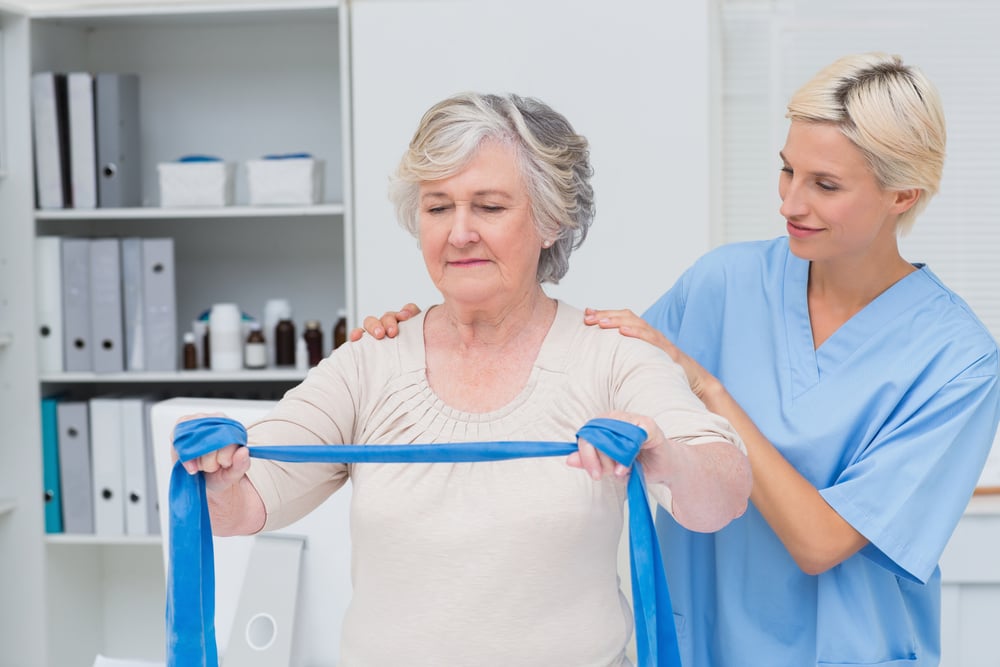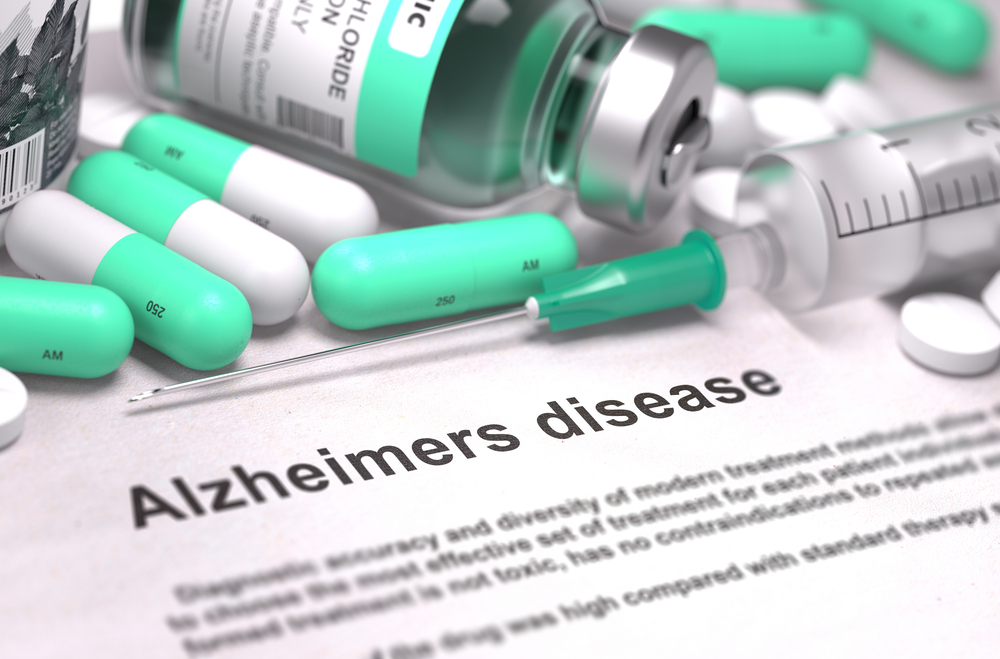Is Psychosis Making Alzheimer's Care Even Harder?
The ADEPT-1 research study offers a new path toward hope. We're investigating a novel approach that may help manage challenging symptoms and improve the quality of life for individuals living with Psychosis Associated With Alzheimer's Disease in Southern California.
A New Study Offers Hope for Managing Challenging Behaviors in Alzheimer's.
Living with Alzheimer's is challenging, and the added burden of psychosis can make daily life even more difficult for both patients and their caregivers.
Does your loved one seem confused about their surroundings or insist on things that aren't true?
Is it becoming more difficult to care for your loved one due to their increased anxiety or aggression?
Do they have beliefs that seem out of touch with reality? Do they express fears or suspicions that are unfounded?
We want to understand and treat these behaviors as much as you do.
The ADEPT-1 study is evaluating the safety and effectiveness of KarXT (xanomeline-trospium), a novel investigational medication, for the treatment of psychosis associated with Alzheimer's disease. Current treatments often come with significant side effects and limited effectiveness. KarXT offers a new mechanism of action with the potential for improved outcomes and better tolerability.
This Phase 3 research study is a randomized, double-blind, placebo-controlled, multi-center trial, meaning some participants will receive KarXT, while others will receive a placebo. This rigorous design helps us accurately assess the true benefits of KarXT. The study is being conducted over 38 weeks in outpatient settings across Pasadena, Los Angeles, and the greater Southern California area.
To be eligible for this study, a potential participant must:

- Be between the ages of 55 and 90
- Have possible or probable Alzheimer's disease and currently experiencing moderate to severe delusions or hallucinations.
- Have a study partner/caregiver that will be able to attend clinic visits, report on the participant’s status, oversee medication and treatment, and participate in some written study assessments
What can study participants and their caregivers expect?
The Study Will Last 44 Weeks
The primary goal of ADEPT-1 is to evaluate whether KarXT can prevent relapse of psychosis symptoms in individuals with Alzheimer's disease compared to a placebo. The secondary goals of the study are to assess the time from randomization to stopping the treatment for any reason, as well as the safety and tolerability of KarXT in patients with Alzheimer's-related psychosis, compared to a placebo.
To begin, we'll want to get a complete picture of your loved one's health and their experience with Alzheimer's disease. We'll start with a comprehensive assessment to determine if the study is a good fit. This will involve reviewing their medical history and conducting a physical exam.
We'll also perform some memory and cognitive tests to understand their current cognitive abilities. As the caregiver, you'll be asked to share insights about your loved one's symptoms and how they are affecting their daily life. This evaluation helps us ensure your loved one's safety and gather essential information for the study.
If your loved one qualifies for the study, they'll be randomly assigned to receive either the study medication (KarXT) or a placebo. It's important to note that neither you nor the study doctor will know which they are receiving. Throughout the study, you and your loved one will come to the clinic for regular visits, typically every few weeks. These visits will include check-ups to monitor their health, medication adjustments if needed, and assessments to track their progress. We understand that attending these visits requires a time commitment, and we truly appreciate your dedication to supporting your loved one's participation.
Our dedicated team will be with you every step of the way. We'll be available to answer any questions you may have, address any concerns, and provide support to both you and your loved one. We'll closely monitor your loved one's health and well-being throughout the study and keep you informed about any changes or new developments. Your participation in this research is incredibly valuable, and we're committed to making this experience as positive and rewarding as possible.
Questions & Answers
What is KarXT?
What is KarXT?
KarXT is an investigational medication that works differently than current treatments for psychosis. It combines two components: xanomeline, which activates specific receptors in the brain involved in learning and memory, and trospium, which helps reduce side effects. KarXT may help improve psychotic symptoms like hallucinations and delusions with potentially fewer side effects than existing medications.
What does participation in the study involve?
Participating in the ADEPT-1 study involves a commitment to attending regular visits at the study clinic, typically every few weeks, for about 9 months. During these visits, your loved one will undergo check-ups, receive the study medication or a placebo, and complete assessments to monitor their progress. As the caregiver, you'll play an important role by accompanying your loved one to visits, observing their behavior at home, and providing information to the study team.
What are the potential risks and benefits of participating?
Like all medications, KarXT may cause side effects. However, not everyone experiences these side effects, and they are often mild and manageable. The potential benefits of KarXT include a reduction in psychotic symptoms, improved cognitive function, and a better quality of life for both the patient and caregiver. By participating in the study, you'll also be contributing to important research that could lead to new and better treatments for Alzheimer's disease.
Will my loved one receive KarXT?
Due to the randomized nature of the study, your loved one will be assigned to receive either KarXT or a placebo. This is done to ensure that any observed effects can be confidently attributed to the medication and not to other factors. Neither you nor the study doctor will know which treatment your loved one is receiving.
How is my loved one's privacy protected?
We take the protection of your loved one's personal information very seriously. All information collected during the study will be kept strictly confidential and handled in accordance with the Health Insurance Portability and Accountability Act (HIPAA) and all other applicable privacy regulations.
Can we leave the study if we wish to?
Yes, participation in the ADEPT-1 study is completely voluntary, and your loved one has the right to withdraw at any time, for any reason, without penalty.

A New Study Offers Hope for Managing Challenging Behaviors in Alzheimer's.
Recruiting

A Clinical Research Study for PsychosisAssociated with Alzheimer’s Disease
Downloadable
Could you be part of the next Alzheimer's research breakthrough?
Research has changed the way we diagnose, treat, and understand Alzheimer's disease and it's made only possible because of people with Alzheimer's Disease who participated in clinical trials. Join us in learning better about the condition while participating in studies that will shape the future of Alzheimer's Disease and the thousands of people affected by it.
Don't hesitate to contact us.
Roxanne Cabading
Patient Engagement, SC3 Research Group
+1-6262502070 x 799
roxanne.cabading@neurosearch-usa.com
960 E. Green St., Suite 310, Pasadena, CA 91106

-1.png?width=120&height=928&name=SC3%20-%20Ask%20The%20Expert%20Mar%2028%20(1)-1.png)


